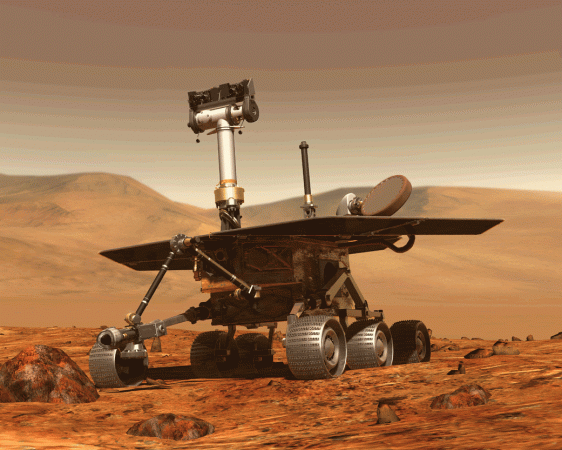
It appears that NASA JPL's Opportunity Mars rover's days are coming to an end. Reportedly, John Callas, the Opportunity Mars rover project manager, said that the American space agency field center may be "forced to conclude" the operations of the land rover, which has been struck in a huge dust storm on Mars. The rover cannot be saved if it doesn't "phone home" within 45 days after the massive dust storm of 2018 on the Red Planet.
In a statement, Callas put forward several points, some of which may technically have some truth in them. However, they do not really make for a satisfactory explanation pertaining to the choices described there.
"If we do not hear back [from Opportunity] after 45 days, the team will be forced to conclude that the Sun-blocking dust and the Martian cold have conspired to cause some type of fault from which the rover will more than likely not recover. At that point, our active phase of reaching out to Opportunity will be at an end. However, in the unlikely chance that there is a large amount of dust sitting on the solar arrays that is blocking the Sun's energy, we will continue passive listening efforts for several months," said Calwell in the statement.
An ex-engineer of JPL, Scott Maxwell has clarified over the difference between the active and passive recovery attempts. Maxwell had led the drive planning for rovers, such as Spirit and Opportunity.
Because it's a FAQ ... "active listening" has two parts: (1) forcing Opportunity's radio, if she's listening, to a particular frequency (because it can drift), and (2) a command to talk to us. Pretty much guaranteed to work if she's awake with her radio on. https://t.co/iaHbHXFKqm
— Scott Maxwell (@marsroverdriver) August 31, 2018
However, the statement doesn't offer any explanation regarding the 45-day deadline, which would start from the very moment the dust storm clears from the Martian skies, which is expected to happen within the next few weeks. Also, the agency doesn't say anything as to why the "active" recovery attempts would be stopped after the deadline ends.
The nearly 15-year-old, solar-powered Opportunity rover has been hunkering down during a planet-wide dust storm that has finally started to clear on Mars. Will it phone home? We hope so. We’re all rooting for you! Follow @MarsRovers for updates: https://t.co/OV2X0HA37A pic.twitter.com/uu4et3guq7
— Thomas Zurbuchen (@Dr_ThomasZ) August 30, 2018
Although Callas version seems correct theoretically, the engineers who have had two-decades-long experience of operating such rovers, think that these points are utterly shallow and mostly don't make sense.
According to The Atlantic, this kind of a dust-storm had caused Spirit rover to go into hibernation in 2010. However, JPL mission engineers didn't give up on it. Rather they spent ten months actively attempting to rescue the rover. After that, they spent another 5 months trying to passively listen and then only they called off the rescue mission.
Reportedly, the engineers of Opportunity believe that the rover had earlier underwent such hibernation and will once again survive the massive dust-storm. In that case, the decision of calling off the rescue efforts and killing the rover prematurely seems to have been driven by political and financial reasons, they alleged, according to the report.
Essentially, if the Opportunity fails to start communicating soon after the storm ends; we will lose the rover forever.
This rover was originally expected to have a lifespan of 90 days and now it has been nearly 15 years that Opportunity is feeding the earthlings with information about Mars. And even if it fails to survive this time, Opportunity's legacy will live on. However, let's hope for the best, as we know Opportunity is a fighter and won't give up without a good fight.

















